- Home
- Brian Lumley
The Source Page 5
The Source Read online
Page 5
They began to walk again, passed through the gymnasium and out into a room containing a small swimming pool. The pool wasn’t tiled; it had simply been blasted out of the bedrock along a natural fault. Here, where the uneven, veined ceiling was a little higher, several of the Projekt’s staff were swimming in the pool’s heated water; the room echoed to the slapping sounds of flesh on plastic as two women open-handed a ball to and fro between them. A thin, balding man was practicing jack-knives from a springboard.
“As for your ‘debriefing,’” said Khuv, shrugging, “well, there’s high-tech and there’s high-tech. The West has its miniaturization, its superb electronics, and we have our—”
“Bulgarian chemists?” Jazz cut him short. The tiled walkway at the side of the pool was wet and his feet were slipping; he stumbled, and Vyotsky caught his arm in a powerful grip, steadied him. Jazz cursed under his breath. “Do you know how uncomfortable it is walking round in this thing?” He was talking about his strait-jacket.
“A necessary precaution,” said Khuv. “I’m sorry, but it really is for the best. Most of the people here aren’t armed. They’re scientists, not soldiers. Soldiers guard the approaches to the Projekt, certainly, but their barracks are elsewhere; not far away, but not here. There are some soldiers here, as you’ll see, but they are specialists. And so, if you were to get loose—” again his shrug. “You might do a lot of damage before you met up with someone like Karl here.”
At the end of the pool they passed out through another door into a gently curving corridor which Jazz recognized as the perimeter. That was what they called it, “the perimeter”: a metal-clad, rubber-floored tunnel which enclosed the entire complex about its middle level. From the perimeter, doors led inwards into all the Projekt’s many areas. There were still a few doors Jazz hadn’t been through, the ones which required special security access. He’d seen the living areas, hospital, recreation rooms, dining hall and some of the laboratories, but not the machine itself, if there was such a beast. Khuv had promised him, however, that today he was to visit “the guts” of the place.
Khuv led the way, Jazz following, with Vyotsky bringing up the rear. People came and went around them, dressed in lab smocks, overalls; some with millboards and notes, others carrying pieces of machinery or instruments. The place could easily be some high-tech factory anywhere in the world. As Jazz and his escort proceeded, so Khuv said:
“You asked me about your debriefing. Well, you’re right about our Bulgarian friends: they really have a knack for brewing potent stuff—and of course I’m not just talking about their wine. The pills were to cause you pain; they cramp muscles, heighten sensitivity. The shots are part truth-drug, part sedative. They have the effect of making you susceptible to suggestion. It’s not so much that you can’t refuse, more that you’re far more likely to believe—anything that we tell you! Your Debriefing Officer not only speaks very good English, but he’s a top-rank psychologist, too. So don’t blame yourself that you let your side down. You really had no choice. You thought you were home and dry, and that you were only doing your duty.”
Jazz merely grunted for reply. His face was void of emotion, which was the way he’d kept it most of the time since discovering he’d been duped.
“Of course,” Khuv continued, “your own British, er, ‘chemists’ are rather clever men in their own right. That capsule in your mouth, for instance: we weren’t able to analyse its contents here at the Projekt. Hardly surprising; we aren’t equipped with a full range of analytical facilities—mat’s not what the Perchorsk Projekt is about—but even so we were at least able to conclude that your little tooth capsule contained a remarkably complex substance. That’s why we’ve sent it to Moscow. Who can say, maybe there’s something in it we can use, eh?”
While he spoke to Jazz, Khuv kept glancing back at him, checking him up and down as he’d done so often during the course of the past few weeks. He saw a man only thirty years of age, upon whose shoulders his secret service masters in the West had placed an awesome weight of responsibility. They obviously respected his abilities. And yet for all Simmons’s training, his physical and mental fitness, still he was inexperienced. Then again, how “experienced” can a field agent in the secret service be? Every mission was a flip of a coin: heads you win, and tails … you lose your head? Or as the British agent himself might have it, a game of Russian roulette.
For all Simmons’s expertise in his many subjects, still they were only theoretical skills, as yet untested under “battle” conditions. For on his very first assignment the dice had rolled against him, the cylinder had clicked into position with its bullet directly under the firing pin. Unfortunate for Michael J. Simmons, but extremely fortunate for Chingiz Khuv.
Again the KGB Major’s dark jewel eyes rested on Simmons. The Englishman stood just a fraction under six feet tall, maybe a half-inch less than Khuv himself. During the time he’d spent in his role as a logger he’d grown a red beard to match his unruly shock of hair. That had gone now, revealing a square jaw and slightly hollow cheeks. He’d be a little underweight, too, for apparently the British liked their agents lean and hungry. A fat man doesn’t run as fast as a thin one, and he makes a much easier target.
For all that he was young, Simmons’s brow was deeply lined from frowning; even taking into account his present circumstances, he did not seem a particularly happy man, or even one who’d ever been especially happy. His eyes were keen, grey, penetrating; his teeth (with the exception of the ones Karl had removed) were in good order, strong, square and white; about his sturdy neck he wore a small plain cross on a silver chain, which was his only item of jewellery. He had hands which were hard for all that they were long and tapered, and arms which seemed a little long, giving him a sort of gangling or gawky appearance. But Khuv was well aware that appearances can be deceptive. Simmons was a skilled athlete and his brain was a fine one.
They reached an area of the perimeter Jazz had not seen before. Here the coming and going of staff was far less frequent, and as the three turned the curve of the long corridor so a security door had come into view, blocking it entirely. On the approach to this door the ceiling and walls were burned black; great blisters were evident in the paintwork; closer to the door the very rock of the ceiling appeared to have melted, run down like wax and solidified on the cool metal of the artificial walls. The rubber floor tiles had burned right through to naked metal plates, which were buckled out of alignment. It seemed somehow paradoxical that a Russian Army flame-thrower stood on a shelf against the exterior wall, clamped in position there. In surroundings like these Jazz might well have expected a fire extinguisher—but a flame-thrower? He made a mental note to ask about it later, but right now:
“The Perchorsk Incident,” he said, watching Khuv for his reaction.
“Correct.” The Russian’s expression didn’t change. He faced Jazz eye to eye. “Now we are going to take that strait-jacket off you. The reason is simple: down in the lower levels you will need some freedom of movement. I don’t want you to fall and hurt yourself. However, should you attempt anything foolish, Karl has my permission—indeed he has my instructions—to hurt you severely. Also I should tell you that if you got lost down there, you could well find yourself in an area of high radioactivity. Eventually we may get around to decontaminating all the hotspots, but it’s unlikely. Why should we when we won’t have cause to use those areas again? And so, depending on how long it took you to surrender, or how long it took us to flush you out, you would almost certainly jeopardize your health—perhaps even fatally. Do you understand?”
Jazz nodded. “But do you really think I’d be stupid enough to make a run for it? Where to, for God’s sake!?”
“As I explained before,” Khuv reminded him while Vyotsky unfastened the restraining straps on his straitjacket, “we aren’t too concerned that you’ll try to escape. That would be sheer suicide, and you no longer have reasons to wish to die—if you ever did. What we are concerned about is the damage you m
ight do, maybe even large-scale sabotage. And that could have very grave consequences indeed. Not only for everyone here, but for the entire world!”
For once Jazz’s expression changed. He slanted his mouth into a humourless smile, laughed gratingly. “A bit melodramatic, aren’t we, Comrade? I think maybe you’ve been watching too many decadent James Bond films!”
“Do you?” said Khuv, his slightly slanted eyes narrowing a fraction and becoming that much brighter. “Do you indeed?”
He took a key from his pocket, turned to the heavy metal door. It was equipped with a lock set centrally in a steel hand-wheel, like a locking device on a bank vault. As Khuv went to insert his key, so the wheel turned through quarter of a circle and the edges of the door cracked open. Khuv stepped back. Someone was coming through from the other side.
The door opened fully toward the three where they waited, and a handful of technicians and two men dressed in smart civilian clothes came through. One of the two was fat, beaming, jovial: a VIP visitor from Moscow. The other, grave-faced, was small and thin; his face was badly scarred and the hair was absent from the left half of his face and yellow-veined skull. Jazz had seen him before; he was Viktor Luchov, Direktor of the Perchorsk Projekt—a survivor of Perchorsk Incidents One and Two.
Brief greetings were exchanged between Khuv and these two men, and then the larger party went on its way. Then Jazz and his escorts passed through the door and Khuv locked it behind them.
Beyond the door the complex took on an entirely different aspect. By comparison, the damage on the approach to this area had been superficial. Jazz stared and tried to make sense of the chaos he saw there. The evidence of terrific heat was apparent everywhere: stanchions were blackened and in places eaten half-way through; the floor-plates were missing entirely, had been replaced with timbers; the face of the exterior rock wall—literally the mountain itself—was black, dull and lumpy, like lava frozen in its course. A metal chair or desk—difficult to tell which—and a steel cabinet projected in twisted ruin half out of a massive nodule of lava which was in turn welded to the wall; and above this anomalous nodule a cylindrical shaft maybe twelve feet in diameter had been drilled through the rock upwards at an angle of forty-five degrees, from the lip of which the lava could be seen in large part to have issued.
Jazz looked again at the dark throat of the shaft, wondered how it could have been cut and where it went. He reached up a hand to touch the side of the rim where the shaft opened into the corridor; the rock was smooth as glass, not lumpy like the volcanic flow from the shaft’s lip … Aware that Khuv was watching him, Jazz shot him an inquisitive glance.
“I’m told that used to have a square cross-section, whose sides were something less than two metres,” Khuv informed. “Also that it was lined with a perfect mirror of a very high density glass on impervious ceramic, giving almost 100 per cent reflectivity. After what you have termed the Perchorsk Incident, this is what remained of the shaft. I suppose you might say that this is what comes of trying to pass a round peg through a square hole, eh?” And before Jazz could answer: “Of course, I wasn’t here when this happened. You see, I have my own job, Michael—you’ll forgive my familiarity?—with a branch of the Service whose work you would find entirely unbelievable. It is that E-Branch of which we’ve already spoken.”
Jazz said nothing, continued to glance all about, tried to take in all he was seeing and hearing. What good that would do him, he couldn’t say, but it was all part of his training. “E-Branch, yes, Michael,” Khuv went on. “You English have an E-Branch, too, you know-which is why we were so interested to know if you were a member of that organization. If you had been—” he shrugged “—then we would have been obliged to dispose of you from the outset.”
Jazz raised his customary eyebrow.
“Oh, yes,” said Khuv, casually, “for we couldn’t allow you to transmit—neither telepathically nor any other way—knowledge of this place to the outside world. That, too, could be very dangerous; so much so that it might even conceivably bring about World War III!”
“More melodramatics,” Jazz murmured.
Khuv sighed deeply. “You will understand—eventually,” he said. “But first find yourself a place to sit for a while, and I’ll tell you everything you were sent here to discover. You see, I actually want you to understand everything. You’ll know why later.”
Khuv perched himself on a knob of black rock while Jazz found a seat on the side of the steel cabinet where it leaned out of the lava nodule. Vyotsky remained standing, saying nothing, merely watching. The Projekt’s air-conditioning whispered faintly, distantly, and apart from this and Khuv’s voice, all was silent. Khuv spoke very softly and the effect was eerie: like a whisper echoing in some deeply buried alien vault.
“You must blame all you see here primarily on the USA’s SDI or Star Wars scenario,” he began. “Of course, those terms hadn’t been thought of as early as that, but the idea was there sure enough. We knew that much from standard intelligence sources. As for the Perchorsk Projekt: it was little more than a clever theory until America started dreaming up its space defence initiative. But after that it was the same old story: we had to have an even better defence system. As with bigger and better bombs, so with defence systems. If Star Wars could mean the loss of 95 per cent of our nuclear capability, then we had to have something which cancelled out the West’s strike capability utterly.
“Perchorsk was to have been the first step, the proving ground. If it had worked, then similar installations would have been constructed all around Russia’s borders. The satellite countries might perhaps have to fend for themselves in any future holocaust, but the Soviet heartland would be defended—completely! Do you follow me so far?”
Jazz cocked his head on one side. “You’re telling me that this,” he glanced here and there, all about, “wasn’t intended as a weapon, right?”
“Exactly,” Khuv nodded. “It was to have been the opposite of a weapon: a shield. An impenetrable umbrella over the head of the central Soviet Union. Ah! But now I see how interested you are; finally we have a little animation! Well, and should I proceed?”
“By all means,” said Jazz at once. “Do go on.”
Khuv settled into his story:
“Don’t ask me about the mechanics of the thing; I’m a—well, a ‘policeman,’ not a physicist! Franz Ayvaz was the brains and driving force behind Perchorsk, and Viktor Luchov was his second-in-command. Ayvaz, as you may already know, was our top man in Particle Beam Acceleration and various associated fields of research; in his younger days he’d been a leading pioneer of laser technology; his credentials were impeccable, and his theory—on paper at least—seemed to be exactly what the defence staff was looking for. A dual-purpose force-field to shut out incoming missiles and render their nuclear capacity entirely harmless.
“That’s how the Perchorsk Projekt was born five years ago, and this is where it died three years later. Ayvaz died with it, and Luchov is still here gathering information, piecing it all together and seeing if there’s anything that can be salvaged. As to what happened exactly:
“What was supposed to happen was this:
“A beam was to be generated down below in the lower levels. That’s where most of the hardware used to be. Accelerated to the limits of tolerance and excited by atomic bombardment, it would be released up this shaft and emitted like an enormous laser into the ravine. Where the shaft emerged into the ravine, a nest of mirrors would divide the beam into a fan shape which would be waved across the sky and into space. It was to be a test, that’s all. The very first of a series.
“Alas, there was a failure in the motors which governed the movement of the exterior mirrors. They jammed in the worst possible position at the worst possible moment. Also, the scientists here had been under pressure; their work had been hurried and performed in conditions which weren’t the best; a full range of failsafe devices had not been incorporated. Do you know what happens, Michael, if you plug the barrel of
a gun, load it and pull the trigger? But ridiculous to ask a question like that of a man who is an expert in firearms! Of course you know what happens.
“Well, and that’s what happened here. There was a colossal blow-back. Energies sufficient to fill an arc of space covering from Afghanistan to Franz Josef Land were trapped and confined within the shaft and redirected back to their source. There was a collision of awesome forces, the instantaneous generation of incredible temperatures, and in the immediate vicinity of the beam matter itself underwent some radical changes. Now of course that is my non-technical layman’s explanation. You will need to talk to Luchov if you want more—but I guarantee you wouldn’t understand him. Not unless there’s a lot more to you than we’ve discovered, anyway.
“So … that was the Perchorsk Incident, or ‘pi’ as your people in the West have christened it. The shambles you see here is not one hundredth part of the devastation which occurred down below, where we’ll be going in a moment. And as for loss of life: we paid a terrible toll for our haste, Michael, a terrible toll. But not so terrible as the toll we may still have to pay …”
With those enigmatic words still echoing, Khuv abruptly stood up. “Let’s go deeper,” his words were clipped, urgent, “right now! Two levels down, where perhaps you’ll be able to get the feel of what it was really like.” Jazz got to his feet and followed on, and once again Vyotsky formed their tail along the perimeter a little way, then down wide, heavy-beamed wooden stairs into what could only be termed a region of sheer fantasy.
With one hand lightly on the rail, Jazz stared into the dim recesses of a great disorder, a weird chaos. The lighting was poor here, perhaps deliberately so, for certainly what little could be seen was—to say the least—disconcerting, even frightening. Down through a tangle of warped plastic, fused stone and blistered metal they passed, where on both sides amazingly consistent, smooth-bored tunnels some two or three feet in diameter wound and twisted like wormholes through old timbers, except they cut through solid rock and crumpled girders.

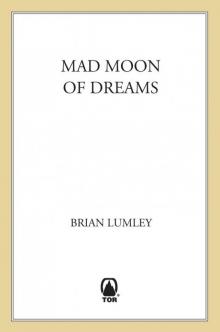 Mad Moon of Dreams
Mad Moon of Dreams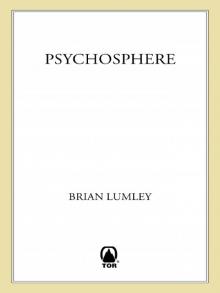 Psychosphere
Psychosphere Haggopian and Other Stories
Haggopian and Other Stories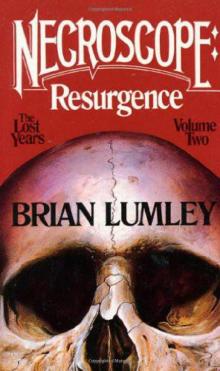 Resurgence_The Lost Years_Volume Two
Resurgence_The Lost Years_Volume Two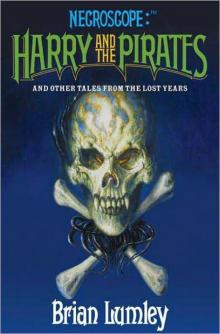 Necroscope: Harry and the Pirates: And Other Tales From the Lost Years
Necroscope: Harry and the Pirates: And Other Tales From the Lost Years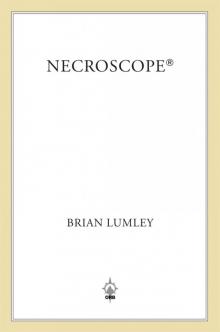 Necroscope®
Necroscope®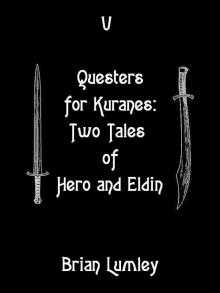 Dreamlands 5: Questers for Kuranes: Two Tales of Hero and Eldin
Dreamlands 5: Questers for Kuranes: Two Tales of Hero and Eldin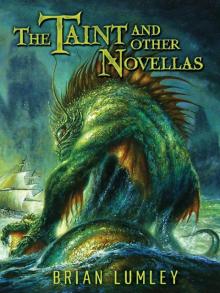 The Taint and Other Novellas: Best Mythos Tales Volume 1
The Taint and Other Novellas: Best Mythos Tales Volume 1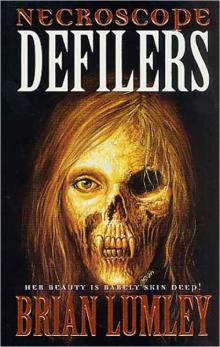 Necroscope: Defilers
Necroscope: Defilers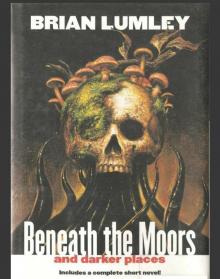 Beneath the Moors and Darker Places
Beneath the Moors and Darker Places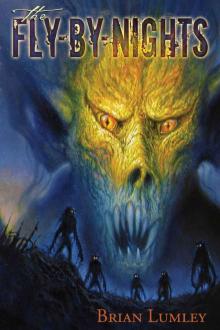 The Fly-By-Nights
The Fly-By-Nights Khai of Khem
Khai of Khem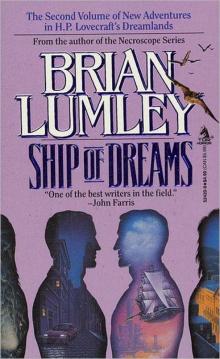 Ship of Dreams
Ship of Dreams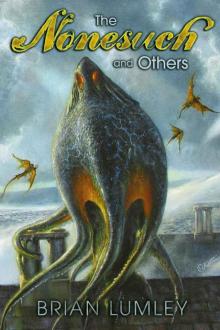 The Nonesuch and Others
The Nonesuch and Others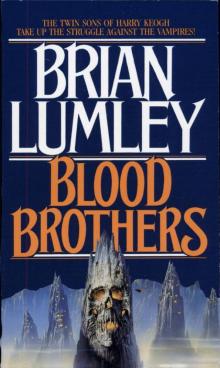 Blood Brothers
Blood Brothers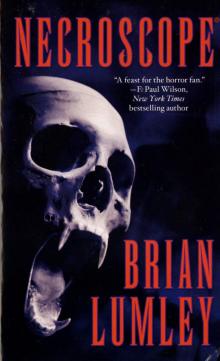 Necroscope
Necroscope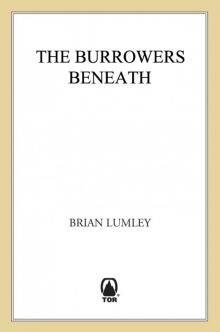 The Burrowers Beneath
The Burrowers Beneath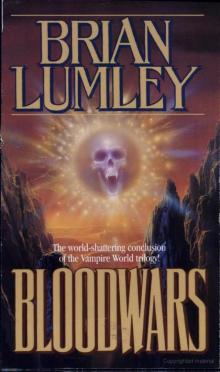 Bloodwars
Bloodwars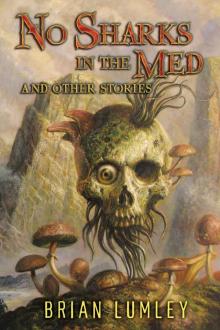 No Sharks in the Med and Other Stories
No Sharks in the Med and Other Stories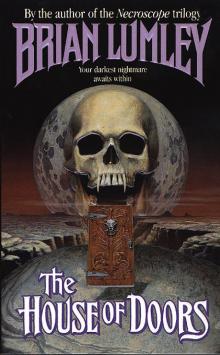 The House of Doors - 01
The House of Doors - 01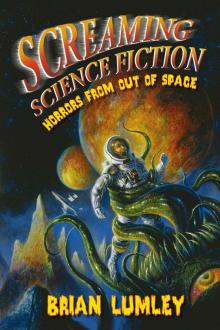 Screaming Science Fiction
Screaming Science Fiction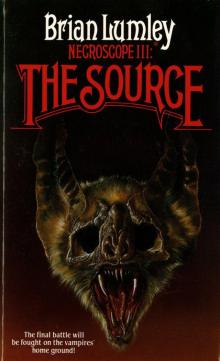 Necroscope III: The Source
Necroscope III: The Source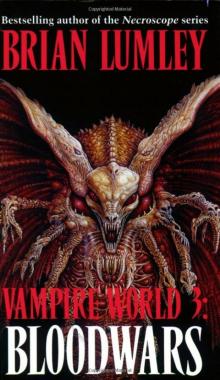 Vampire World I: Blood Brothers
Vampire World I: Blood Brothers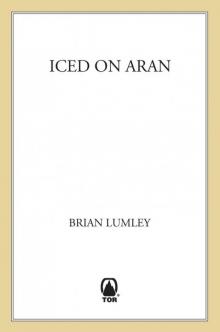 Iced on Aran
Iced on Aran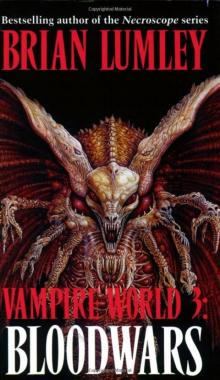 Necroscope: Invaders
Necroscope: Invaders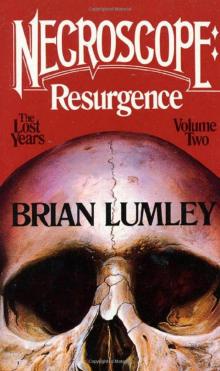 Necroscope: The Lost Years
Necroscope: The Lost Years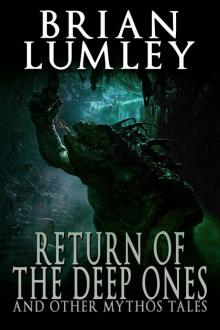 Return of the Deep Ones: And Other Mythos Tales
Return of the Deep Ones: And Other Mythos Tales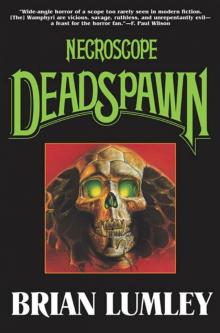 Necroscope V: Deadspawn
Necroscope V: Deadspawn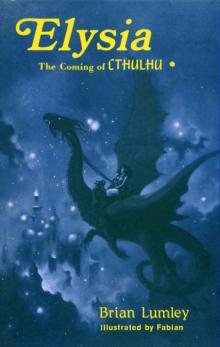 Titus Crow, Volume 3: In the Moons of Borea, Elysia
Titus Crow, Volume 3: In the Moons of Borea, Elysia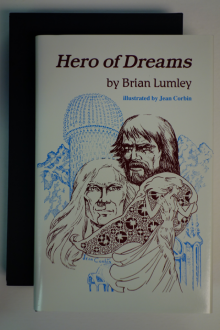 Hero of Dreams
Hero of Dreams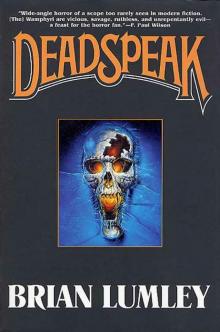 Necroscope IV: Deadspeak
Necroscope IV: Deadspeak The Last Aerie
The Last Aerie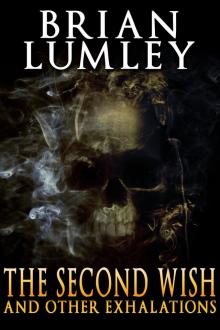 The Second Wish and Other Exhalations
The Second Wish and Other Exhalations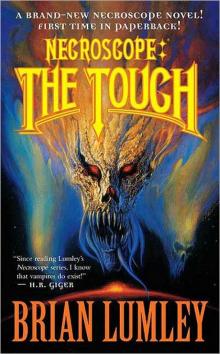 Necroscope: The Touch
Necroscope: The Touch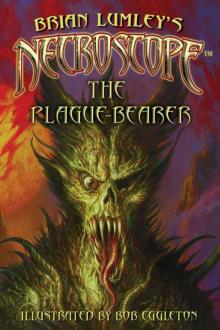 Necroscope: The Plague-Bearer
Necroscope: The Plague-Bearer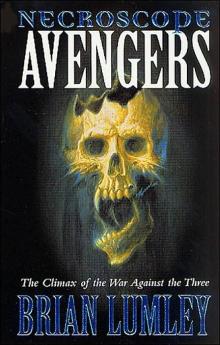 Necroscope: Avengers
Necroscope: Avengers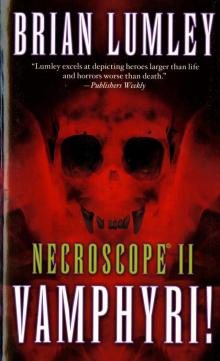 Necroscope II: Wamphyri
Necroscope II: Wamphyri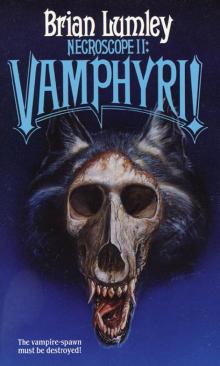 Necroscope II_Vamphyri!
Necroscope II_Vamphyri!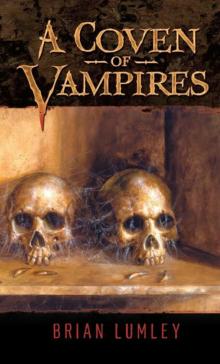 A Coven of Vampires
A Coven of Vampires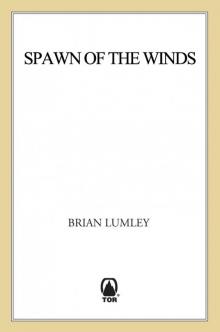 Spawn of the Winds
Spawn of the Winds Sorcery in Shad
Sorcery in Shad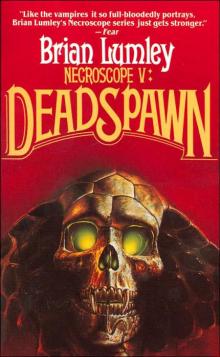 Deadspawn
Deadspawn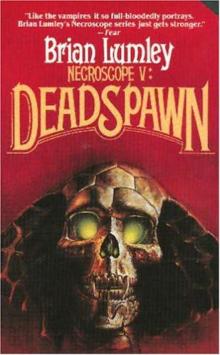 Necroscope V: Deadspawn n-5
Necroscope V: Deadspawn n-5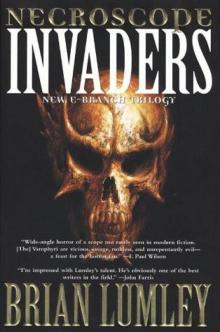 Necroscope: Invaders e-1
Necroscope: Invaders e-1![Beneath the Moors and Darker Places [SSC] Read online](http://i1.bookreadfree.com/i/03/20/beneath_the_moors_and_darker_places_ssc_preview.jpg) Beneath the Moors and Darker Places [SSC]
Beneath the Moors and Darker Places [SSC]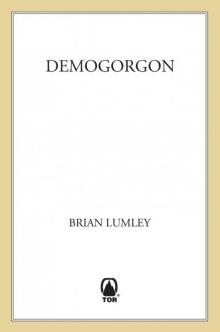 Demogorgon
Demogorgon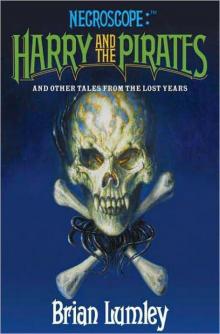 Harry and the Pirates_and Other Tales from the Lost Years
Harry and the Pirates_and Other Tales from the Lost Years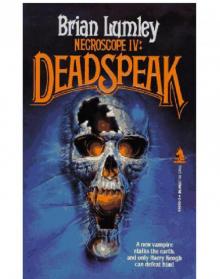 Necroscope IV: Deadspeak n-4
Necroscope IV: Deadspeak n-4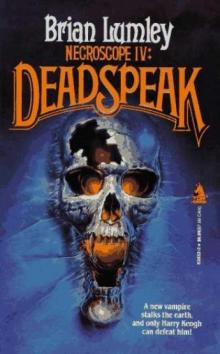 Deadspeak
Deadspeak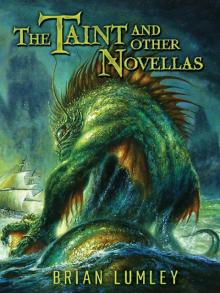 The Taint and Other Novellas
The Taint and Other Novellas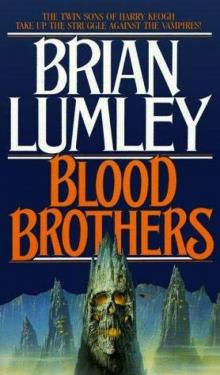 Blood Brothers vw-1
Blood Brothers vw-1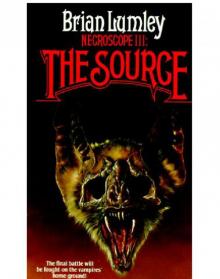 The Source n-3
The Source n-3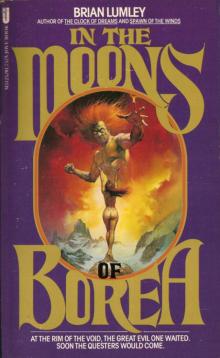 In the Moons of Borea
In the Moons of Borea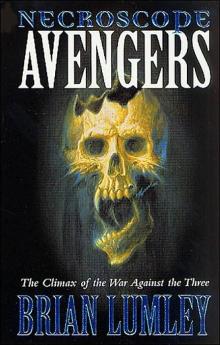 Avengers
Avengers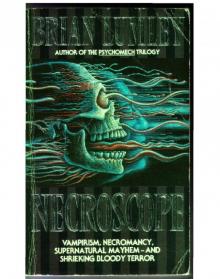 Necroscope n-1
Necroscope n-1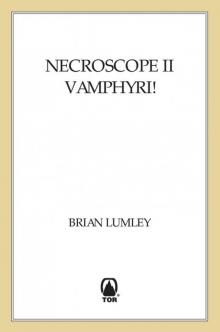 Vamphyri!
Vamphyri!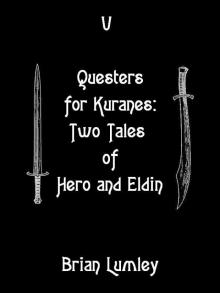 Questers for Kuranes: Two Tales of Hero and Eldin
Questers for Kuranes: Two Tales of Hero and Eldin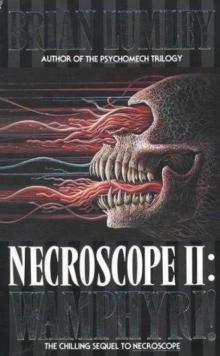 Necroscope II: Wamphyri! n-2
Necroscope II: Wamphyri! n-2 The Source
The Source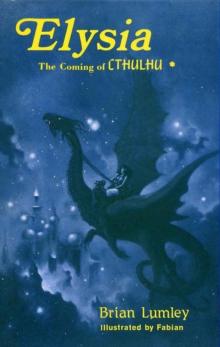 Elysia
Elysia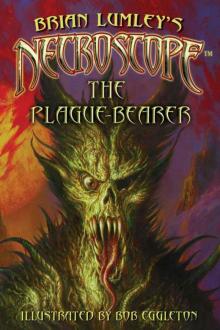 The Plague-Bearer
The Plague-Bearer The Touch
The Touch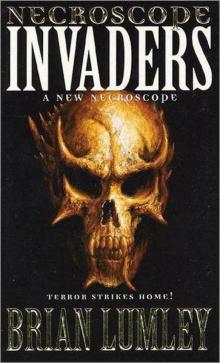 Invaders
Invaders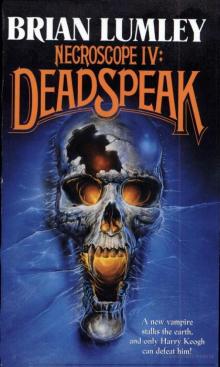 Necroscope 4: Deadspeak
Necroscope 4: Deadspeak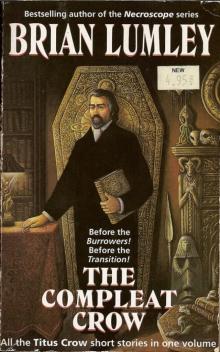 Compleat Crow
Compleat Crow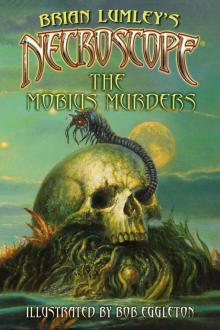 The Mobius Murders
The Mobius Murders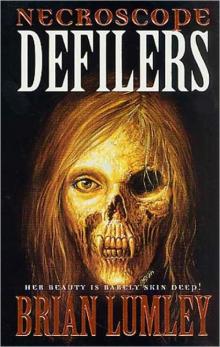 Defilers
Defilers